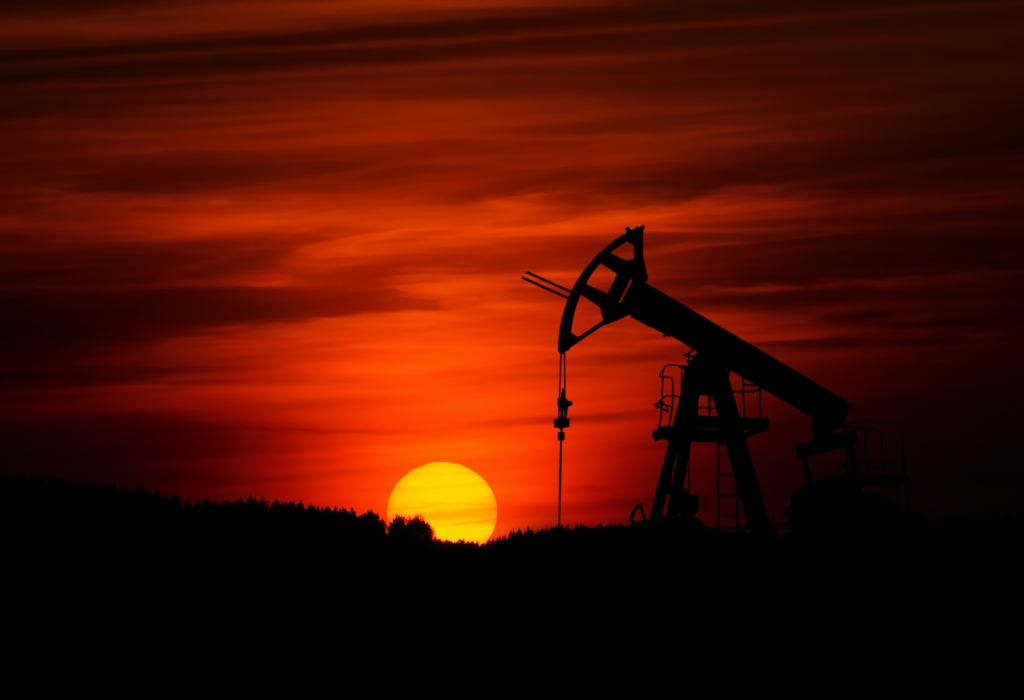Casebook Info
- Year Filed 2019
- Year of Most Recent Ruling 2024
- Year of Final Ruling 2024
- Jurisdiction Netherlands
- Court Name The Hague Court of Appeal
- Primary Focus Mitigation
- Ruling On Merits
- Plaintiff(s) NGOs [Milieudefensie, Greenpeace Nederland, Fossielvrij NL, Waddenvereniging, Both Ends, Jongeren Milieu Actief; ActionAid] and 17,379 citizens
- Respondent(s) Royal Dutch Shell (RDS)
- Outcome Decided
- Organizational leader of the litigation Milieudefensie/Friends of the Earth Netherlands
- Link to the decision/ruling
Background
Fossil fuel companies play an outsized role in driving the climate crisis – indeed, they provide the very fuel for it. Royal Dutch Shell (RDS) is one such fossil fuel company, and it’s the parent company of the Shell group. The Shell group is involved in exploring, extracting, producing and trading oil and gas (among other energy products). RDS determines the group’s general corporate policy, including its climate policy, and the RDS Board oversees the policy’s implementation.
Fossil fuel companies supply the products primarily responsible for the worsening climate emergency, yet there is a dearth of rights-based climate cases targeting corporations. This case, brought by environmental organizations and individuals against Royal Dutch Shell in 2019, was among the first.
In short, the plaintiffs alleged in their petition that RDS’ contributions to climate change violate both its duty of care under Dutch law and its international human rights obligations. Specifically, the plaintiffs argued (1) that the massive total volume of carbon dioxide emitted per year as a result of the operations of the Shell group constituted an unlawful act towards plaintiffs; (2) that RDS must reduce these emissions by at least net forty-five percent relative to 2019 levels by no later than 2030 (or, alternatively, by thirty-five percent or twenty-five percent); and (3) that this reduction in carbon dioxide emissions must be achieved in accordance with the global temperature target of the Paris Agreement and the best available science on climate change.
According to the plaintiffs, these conclusions follow from an unwritten duty of care that RDS has under Dutch law to help prevent, through the corporate policy it determines for the Shell group, dangerous climate change. This unwritten duty must, moreover, be interpreted in accordance with international human rights (including the right to life and the right to respect for private and family life under the European Convention on Human Rights [ECHR], parallel provisions in the International Covenant on Civil and Political Rights [ICCPR], and the soft law that RDS has endorsed on its website and within policy documents, including the UN Guiding Principles on Business and Human Rights, the UN Global Compact Principles, and the OECD Guidelines for Multinational Enterprises). RDS’ long knowledge, misleading statements, and inadequate action on climate change also, according to the plaintiffs, supported a finding that RDS is responsible for hazardous negligence that endangered Dutch citizens.
RDS responded forcefully to the plaintiffs’ claims, asking the Court to dismiss the case on the bases that: (1) the international treaties and guidelines cited by the plaintiffs were not admissible in court because they governed countries, not corporations; (2) the case was not suitable for review by the Court, because the transition from fossil fuels is a political issue that should be resolved by the legislature and politics; (3) the plaintiffs’ claims were too general; and (4) the plaintiffs’ approach was not constructive.
In May 2021, the Hague District Court handed down its landmark ruling. The Court, in short, rejected RDS’ arguments. It found that there is indeed an unwritten standard of care with which RDS must comply and that the content of this standard of care is informed by the relevant facts and circumstances, including the best available science on climate change, the widespread international consensus that human rights can protect people from the impacts of dangerous climate change, and companies’ obligation to respect human rights. After undertaking this analysis, the Court found RDS’ current sustainability policy to be insufficiently concrete and determined that RDS created risks for individuals that interfered with their human rights. To support this conclusion, the Court pointed to the fact that RDS’ emissions are greater than that of most countries. Thereafter, the Court ordered RDS to reduce its global emissions by forty-five percent compared to 2019 levels, including its own emission sources, emissions of third parties from which it acquires operational capacity, and emissions of third parties who have purchased its crude oil and gas (addressing Scope 1, 2 and 3 emissions respectively).
“In light of the broad international consensus that each company must independently work towards achieving net zero emissions by 2050, RDS may be expected to do its part.”
The Court’s decision was monumental for human rights and climate change law: while previous lawsuits against countries had succeeded in obligating governments to reduce emissions, the District Court’s ruling marked the first time a court found that a private company had an obligation to reduce carbon dioxide emissions. The ruling was also far-reaching. It applied not only to RDS directly, but to RDS suppliers as well – covering the entirety of emissions related to RDS. As a result, the ruling had the potential to impact entire fossil fuel supply chains.
In November of 2024, however, the Hague Court of Appeal partially overturned the District Court’s groundbreaking ruling.
Importantly, the Court of Appeal rejected several of Shell’s ten claims on appeal – namely, that the plaintiffs did not have an admissible cause of action; that the reduction order claimed by the plaintiffs would compromise the affordability and security of energy supply, thereby precluding the ‘pooling’ of the interests represented by Milieudefensie; and lastly, that the case concerned a political question unsuitable for civil litigation.
“[T]he fact that political choices must be made to combat dangerous climate change and the fact that not everyone will agree on those choices, do not stand in the way of the admissibility of a collective claim.” (Appellate Ruling)
The Court also consolidated and upheld as clear consensus a wealth of scientific evidence regarding the causes, acceleration, and urgency of the climate crisis. Last, the Court confirmed that “protection from dangerous climate change is a human right” (pp. 23, para. 7.17) and, “on the basis of objective factors,” that Shell has an obligation to counter dangerous climate change.
Ultimately, however, the Court held that it could not assume – on the basis of the general social standard of care – that Shell has an obligation to reduce its emissions by a certain percentage. In so ruling, the Court overturned the District Court’s most significant holding.
First, based on Shell’s presentation of specific reduction targets for scope 1 and 2 emissions, the Court reasoned that the plaintiffs had failed to establish an impending violation of a legal obligation and therefore found it could not grant Milieudefensie’s scope 1 and 2 claims. It did not follow from Shell’s prior downwards revisions of their emissions targets, the Court wrote, that Shell would do so again.
Second, finding that Shell’s reduction obligation could not be based on the general, global standard of a net 45% reduction in CO2 emissions by the end of 2030, the Court dismissed the plaintiffs’ scope 3 claims. Importantly, the Court clarified that Shell may indeed have obligations to reduce its scope 3 emissions – but neither of the standards proposed by Milieudefensie to establish the obligation’s precise scope were applicable. In the Court’s view, the global nature of the general standard indicated that certain sectors, companies, and countries would need to reduce more, while others would be permitted to reduce less. Additionally, the general standard was neither sufficiently case-specific nor designed to be applied on a company-specific basis. Although the Court recognized that Shell has a ‘special responsibility’ as a major oil company to reduce net emissions, neither that alone – nor the principles of equity or precaution – justified application of the average global reduction obligation to Shell.
Similarly, the Court found no established sectoral standard for reductions in the oil and gas sector, based upon scientific consensus, upon which to hold Shell liable to a specific percentage in reductions.
Therefore, although the Court confirmed that companies like Shell have an obligation to limit CO2 emissions to counter dangerous climate change, even where this obligation is not made explicit in states’ public laws, the Court nonetheless found – dealing a significant blow to climate justice advocates and climate emergency litigants across the globe – that it was unable to determine what specific reduction obligation applies to Shell. As a result, Shell is no longer under an obligation to reduce its scope 1, 2, and 3 emissions by 45% by the end of 2030 (as compared with 2019 levels), as previously ordered.
“For the court, there is no doubt that the climate problem is the greatest issue of our time.” (Appellate Ruling)
The court did not answer the question of whether Shell’s planned investments in new oil and gas fields are in violation of the company’s social standard of care obligations. It did opine, however, that it would be reasonable to expect oil and gas companies to take into account the negative consequences of further fossil fuel expansion and a potential ‘lock-in’ effect.
- 45 percent by 2030 The percentage reduction of global emissions compared to 2019 levels that the District Court ordered Shell to achieve
- Article 6:162 The provision of the Dutch Civil Code wherein the Court found an unwritten standard of care that must be interpreted through the lens of international human rights and must be followed by Shell
- Scope 1-2-3 Shell was previously ordered to take action to reduce its direct emissions [Scope 1], its third party energy use [Scope 2] and all other third party emissions [Scope 3]
- $40 Billion The amount Shell plans to invest in its upstream oil and gas business over 2023-2025
Strategies
Tying countries’ / corporations’ climate and human rights obligations to international climate and environmental law, including, for example, the temperature target established by the Paris Agreement
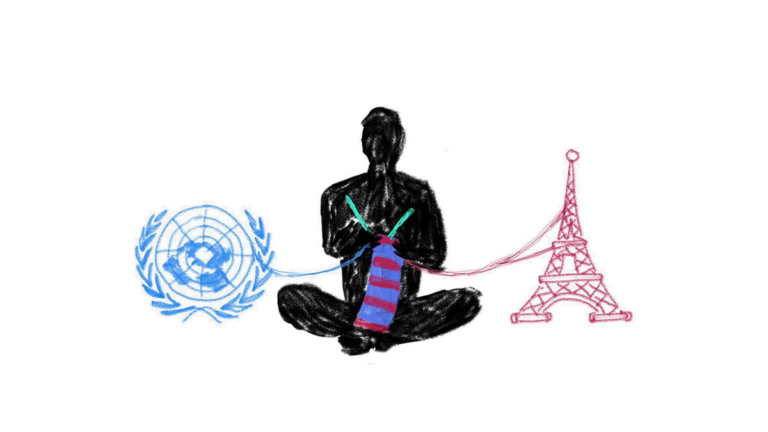
Most human rights and climate change laws and treaties provide that countries – not corporations – have obligations. This makes it difficult to bring rights-based climate cases against corporations.
Here, given the lack of written obligations imposed on corporations by these laws and treaties, the plaintiffs smartly invoked the Dutch “unwritten standard of care,” which provides that it is unlawful to act inconsistently with what is generally accepted under unwritten law. Given this unwritten standard of care, the District Court found that, in determining its corporate policy, RDS must observe the due care exercised in society, regardless of whether RDS had affirmatively committed to this duty of care and regardless of whether a treaty or law explicitly provided so. In more concrete terms, this meant that corporations must respect human rights and that the goals of the Paris Agreement represent a universally endorsed and accepted standard that protects the common interest in preventing dangerous climate change.
Although the Court of Appeal overturned several of the District Court’s holdings, it upheld the lower court’s invocation of international climate and environmental legal frameworks and the lower court’s interpretation of the Dutch unwritten standard of care within that context.
Bringing the case in a more favorable venue / jurisdiction.

The plaintiffs brought the case in the Netherlands, a forum that has proven friendly to climate litigation plaintiffs in the past (see Urgenda v. Netherlands; Four farmers and Milieudefensie v. Shell).
Affirming country / corporate responsibility for their ‘fair share’ of emission reductions, regardless of the actions of other countries or corporations.
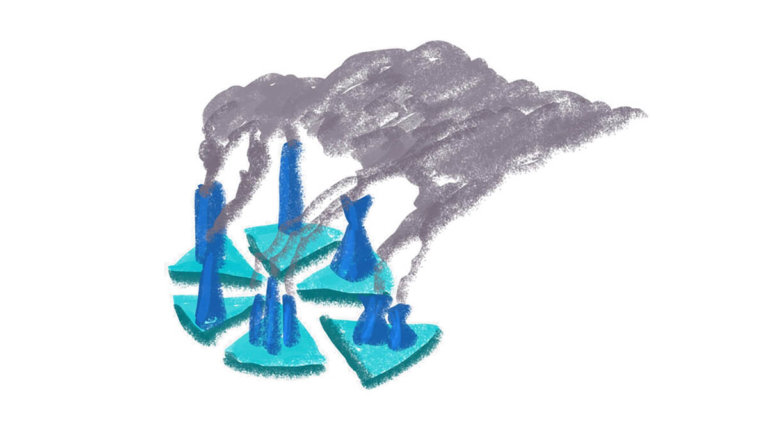
The defendants in climate change lawsuits, usually governments, frequently argue that they can’t be required to take particular actions to address climate change because climate change is a problem that can only be solved globally – i.e., if other countries make insufficient GHG reductions, climate change will continue to worsen, even if the defendant state takes more ambitious action to reduce their emissions. RDS mirrored this argument, using its corporate identity to further justify this shallow defense. Indeed, RDS attempted to use the market model to rationalize the passing of responsibility to consumers and to justify its lack of serious climate change action. RDS also argued that, because it is a corporation, it was not structured to consider the societal interests that prompt countries to take climate action.
Courts have countered this argument by requiring countries to do their “fair share” or “part” of emission reductions, meaning that courts are increasingly requiring countries to reduce GHG emissions by an amount that reflects some metric of fairness, regardless of what other countries do.
Similarly, in this case, the District Court emphasized that RDS is a major player in the global fossil fuel market and is responsible for substantial carbon dioxide emissions, exceeding that of many countries, including the Netherlands. In light of this, the District Court concluded that the actions RDS takes to address climate change cannot depend on the pace at which global society moves towards the climate goals of the Paris Agreement. It further found that RDS’ obligations to respect human rights by implementing appropriate climate policies exists regardless of whether countries are able and/or willing to fulfill their own human rights obligations.
Even if the Court of Appeal ultimately held it could not impose a specific emissions reduction standard on Shell, it nonetheless reiterated this ‘fair share’ logic in confirming that the corporation – as a dominant fossil fuel player on the global stage – has a ‘special’ obligation to take actions mitigating climate change.
“The court acknowledges that RDS cannot solve this global problem on its own. However, this does not absolve RDS of its individual partial responsibility to do its part regarding the emissions of the Shell group, which it can control and influence.”
Articulating an obligation to cooperate internationally
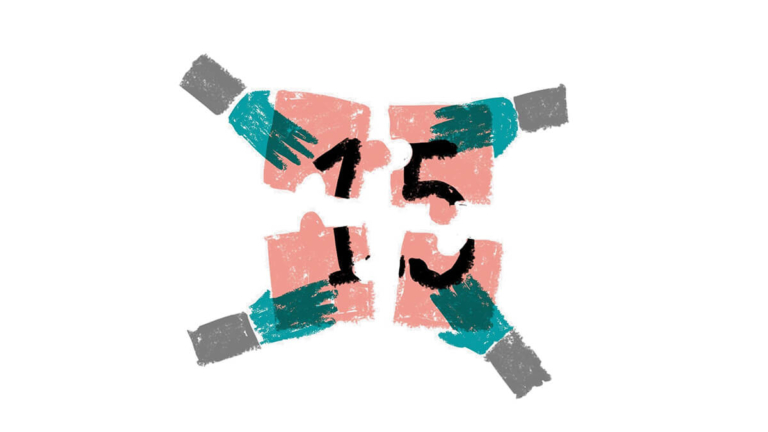
The plaintiffs in this case were careful not to argue that the transition away from fossil fuels should be left to the market or that RDS alone should be held responsible for achieving the GHG emission reductions needed throughout Dutch society. Instead, they agreed with RDS that dangerous climate change is a worldwide problem, which RDS cannot solve on its own. The District Court acknowledged the plaintiffs’ position and further included international cooperation in its interpretation of the unwritten standard of care, meaning that RDS is required to cooperate with others, at least in theory, to address climate change.
Providing an inclusive definition of the greenhouse gas emissions for which countries / corporations are responsible
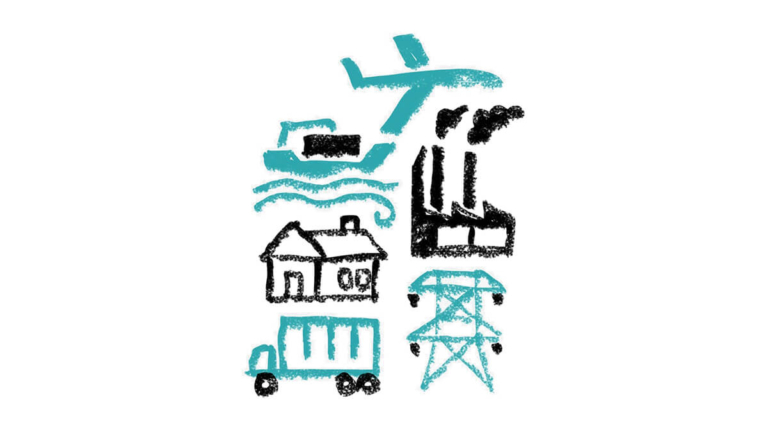
The District Court, examining the GHG emissions which could be attributed to RDS and which it ordered RDS to reduce, explained that an emission source counts as falling within RDS’ operations if RDS’ operations cause or contribute to it and its adverse impacts, taking into account the extent that RDS can control the source’s adverse impacts. Given the control and wide influence RDS has across the Shell group, the District Court originally ordered RDS to take action to reduce both direct and indirect emissions (Scope 1, 2, and 3 emissions), though it provided RDS with more leniency with respect to emissions generated by the third party consumption of Shell’s fossil fuel products. In 2024, the Appellate Court revised the District Court’s ruling insofar as it refused to find that Shell was under an obligation to reduce its emissions by a specific percentage. The Court left the means by which Shell is expected to meet its reduction obligation, including which type of emissions to reduce, to Shell’s discretion.
Notably, the Court of Appeal’s ruling cast doubt on the breadth of Shell’s responsibility with respect to its scope 3 emissions. First, noting that the corporation’s scope 3 emissions are spread across several different sectors, the Court found that applying a general percentage emissions reduction requirement would unjustifiably ignore “the different reduction pathways for the individual sectors that belong to Shell’s customer base” (7.78). Second, the Court held – notwithstanding that Shell may have an obligation to reduce its scope 3 emissions – that downsizing Shell’s resale activities would not necessarily lead to a reduction in CO2 emissions or an adequately strong ‘signaling effect’ on other fossil investors that would achieve the same. Because Milieudefensie’s claim sought scope 3 emissions reductions on precisely those grounds, the Court found the claim ineffective (7.109-7.111).
Using a carbon budget
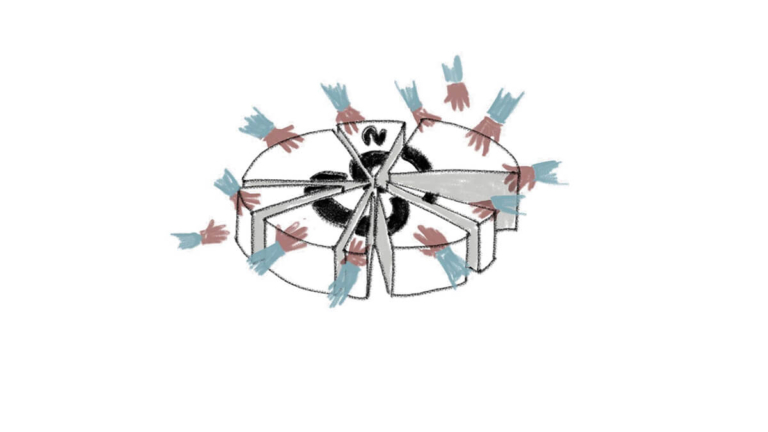
The finite nature of the carbon budget was used by the District Court in this case to reject RDS’ argument that, because any reductions it might make in GHG emissions could be supplanted by its competitors, its climate action would be futile. The Court found instead that every reduction of GHG emissions has a positive effect on countering dangerous climate change by leaving more room in the carbon budget.
Emphasizing the urgency of taking climate action now, given the compounding and permanent effects of climate change as time progresses

The plaintiffs in this case emphasized that unless RDS and other major polluters take urgent action, the world will not meet the temperature goal of the Paris Agreement, thus spelling catastrophic consequences for people and the planet. The District Court agreed and emphasized that the Netherlands has an especially strong imperative to reduce carbon dioxide emissions because temperatures so far have been increasing in the Netherlands twice as fast as the global average, with serious and irreversible consequences and risks for the human rights of Dutch residents.
Using human rights as interpretative guidance when corporations don’t have direct positive human rights obligations

The case demonstrates that human rights can guide interpretations of requirements with which corporations must comply, even when corporations don’t have direct positive human rights obligations.
Take-aways
The fact that climate change impacts many individuals did not prevent the plaintiffs from bringing their claims to the Court for review. Indeed, both courts considered a class action representing the present and future interests of all Dutch citizens to be permissible. However, the District Court did not permit the inclusion of the rest of the world’s population in the class of people represented in the case.
Private companies, not only governments, have responsibilities they must fulfill when it comes to limiting global warming to well below two degrees Celsius, the temperature target of the Paris Agreement.
“Much may be expected of RDS.”
Though corporations may not have written positive human rights or climate change obligations, an unwritten standard of care may in theory be used to enforce the consensus human rights and climate change standards.
Even if an obligation to contribute to climate action has negative effects on a particular corporation and the playing field, the interest served with the obligation may outweigh the commercial interest of the company.
The uncertainty inherent in climate change has no bearing on the prediction that climate change due to CO2 emissions will lead to serious and irreversible consequences for residents of specific countries.
Adaptation measures may reduce the risks associated with climate change, but they do not have an effect upon the obligations of countries or corporations to reduce their GHG emissions.
Protection from dangerous climate change is a human right.
Court interventions may be necessary to catalyze climate action and enforce international and regional targets and standards.
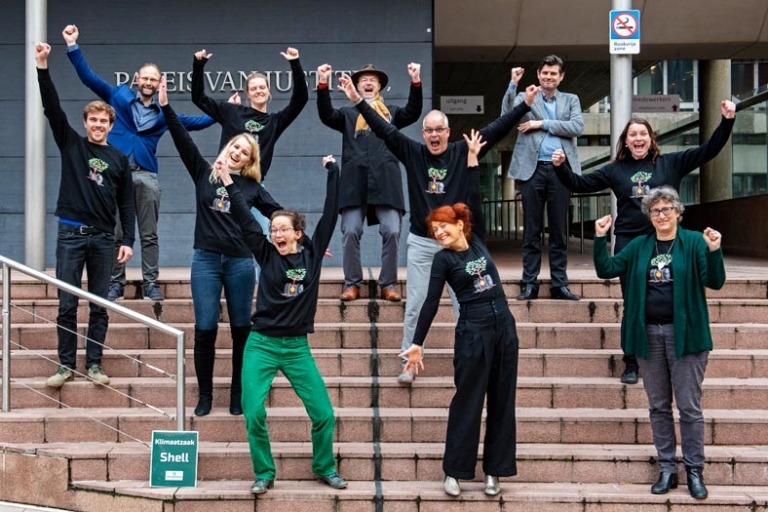
Impacts
The Court of Appeal’s 2024 decision sparked global attention, reinforcing that climate litigation remains a contentious and major legal and public issue. While the ruling did not mandate specific emissions reductions, it did uphold several key legal principles, including the recognition of protection from dangerous climate change as a human right and the special obligations of major oil companies to limit emissions. Optimists may view the case as consolidating and advancing climate jurisprudence by linking human rights to corporate responsibilities. Pragmatists may see lessons for future litigation strategies, potentially shifting focus back to governmental defendants or to more targeted corporate accountability claims. Some fear a chilling effect on large climate cases, while still others note the case may be useful insofar as it has highlighted the financial risks of fossil fuel investments.
At the same time, Milieudefensie v. Shell serves as a keen reminder that every step forward in climate litigation will be uphill – fought for and held, not taken for granted. The ruling demonstrates that momentum alone is not enough, and that each legal battle will continue to require careful strategy and persistence.
The possibility of a Supreme Court appeal remains open, leaving the final chapter of Milieudefensie unwritten.
